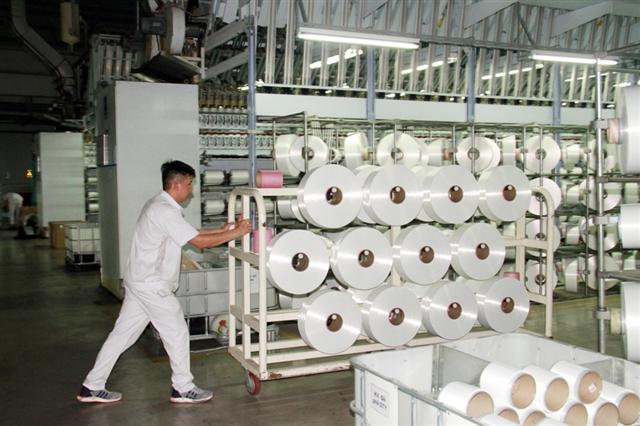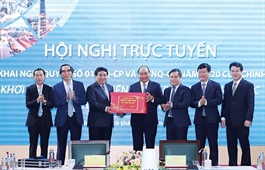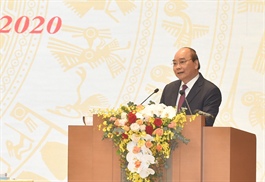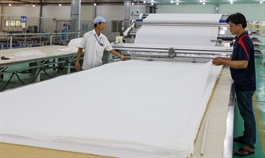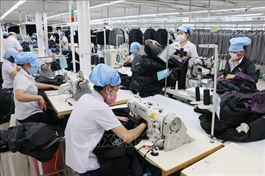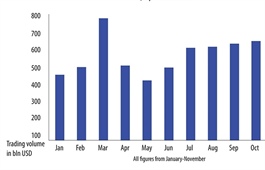Vietnam’s key industries urged to promote supply chain linkages
Vietnam’s key industries urged to promote supply chain linkages
To make the most of opportunities provided by free trade agreements, Vietnam must promote linkages between domestic businesses and foreign companies, enhance the added value of local production, increase product competitiveness and improve firms’ position in the international arena.
|
Limited supply
Ngo Khai Hoan, deputy director of the Industry Agency under the Ministry of Industry and Trade, said the garment and textile, leather and footwear sectors play an important role in Vietnam’s economy, employing up to 4.3 million workers. Their exports account for a large proportion of total national export turnover. In 2019, these two industries exported products worth US$62 billion, equivalent to 24 percent of the country’s total.
However, Vietnam had to import fabrics of all kinds and raw materials for the garment and textile, leather and footwear sectors valued at over US$13.5 billion and US$59.7 billion in 2019, respectively. This was due to the limited capabilities of Vietnam’s support industries in failing to meet the demand for production of finished products. The situation has affected production development and economic growth in the short term.
Than Duc Viet, general director of the Garment 10 Corporation Joint Stock Company, said each year, the company needs 30 million meters of shirt fabric to produce 18 million shirts and five million meters of fabric to produce 1.5 million suits. Therefore, promoting linkages with domestic and foreign businesses is important in order to ensure sufficient raw materials for production.
Nguyen Van Ha, director of the Phu Tho Textile Co., Ltd., said supply capacity of Vietnamese businesses remains limited, while the final stage of product completion is missing.
Promoting linkages
Cao Van Binh, deputy director of the Industrial Development Center (IDC) under the Industry Agency, said the center has launched support programs to help support industry businesses become suppliers for multinational enterprises, while enabling existing suppliers to expand their business and share of added value.
Binh said strengthening investment attraction in an effective manner, promoting linkages between Vietnamese businesses and foreign companies, enhancing added value, increasing product competitiveness and improving firms’ position in the global value chain are among the most important solutions.
These sectors need to carry out reforms to improve corporate governance and promote digital transformation in the management and operation of businesses, helping them make effective use of free trade agreements.


